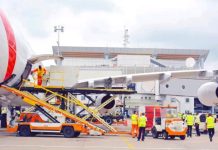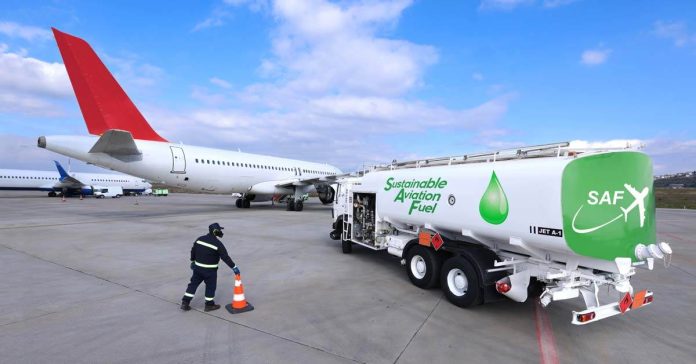Nigeria has reaffirmed its commitment to reducing carbon emissions in the aviation sector by aligning with international efforts and calling for increased investment and global support.
Minister of Aviation and Aerospace Development, Festus Keyamo, made the commitment during separate visits from the House of Representatives Committees on Aviation and Climate Change. He emphasized Nigeria’s alignment with the International Civil Aviation Organisation (ICAO) initiative “Leave No Country Behind” and the Paris Agreement, which target reduced aviation-related emissions.
While noting that the aviation sector contributed only about 2.5% of global CO₂ emissions as of 2015, Keyamo acknowledged the sector’s impact and the urgent need for action. He explained that Nigeria faces serious limitations in investing in infrastructure and research for Sustainable Aviation Fuel (SAF), a key component in transitioning to cleaner energy.
“Even in developed countries, SAF adoption is slow due to limited market demand and the high cost of engine modifications. For developing nations like Nigeria, the financial and infrastructural burden is even greater,” Keyamo said.
He noted that agencies under his Ministry, including the Nigerian Meteorological Agency (NiMet) and the Federal Airports Authority of Nigeria (FAAN), are taking proactive steps. For instance, Lagos’ Murtala Muhammed International Airport reduced its carbon footprint by 6% in 2021 through improved energy management, earning a Level 2 Airport Carbon Accreditation (ACA).
Keyamo further revealed plans to attain Level 3 (Optimisation) ACA for Lagos, and Level 1 (Mapping) for airports in Abuja, Kano, Enugu, and Port Harcourt. Additionally, the Nigeria Civil Aviation Authority (NCAA) is advancing environmental protection through ICAO’s Carbon Offsetting and Reduction Scheme for International Aviation (CORSIA) and its State Action Plan on CO₂ reduction.
He added that the “Fly2Green Nigeria” initiative and partnerships with the National Council on Climate Change are part of broader efforts to support the deployment of SAF, low-carbon aviation fuels, and greener airport operations.
Chairman of the House Committee on Climate Change, Hon. Kama Nkemkanma, and his counterpart on the Aviation Committee, Hon. Chris Nkwonta, both emphasized the need for international collaboration and support. They advocated for incentives, infrastructure funding, and carbon credit systems to ease the transition and help developing countries like Nigeria meet their climate goals.
Nkwonta noted that investments in sustainable energy and climate-smart agriculture through carbon offsets could have far-reaching benefits for both the aviation sector and national food security.
In all, the federal government acknowledged the challenges of transitioning to a climate-friendly aviation system but insisted it would continue to push forward through innovation, partnerships, and policy alignment with global sustainability frameworks.













